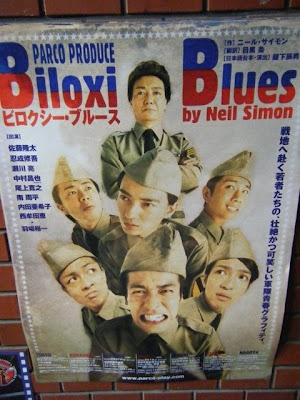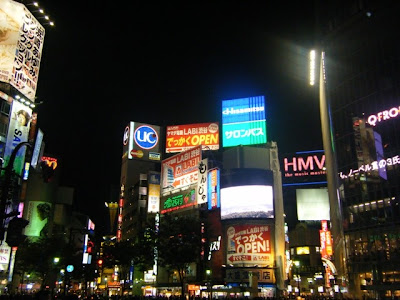What’s the deal with being an actor in Tokyo? Part 2
Part 2 of an English-speaking-ex-pat acting primer for Tokyo
By Benjamin Johnson

JAPAN – In Japan they speak Japanese. So I shouldn’t be surprised at the lack of English theatre. But perhaps the problem is not the language barrier, but the arts industry, and perhaps the very business practices of the second-largest economy on the planet.
The largest English theatre company in Tokyo (their website says this will be their 112th season) is Tokyo International Players. They have four shows in their current season spanning a year, but unfortunately, each show only runs for four days… And the short run is a regular phenomenon with English and Japanese shows in Tokyo. They’re also actively seeking volunteers for all positions, which translates as: there is no money in English theatre in Tokyo.
As for Japanese theatre, the average run is also four days, with more high-profile shows (including casts of TV stars) running a scant two weeks. They appear to be heavily subsidized by sponsors and donations, with most non-Broadway Musical shows concentrated in the small area of Shimokitazawa. The economics of rehearsing for a couple weeks to do four performances is mysterious at best, and indicates that theatre audiences have not been developed as much as in western society.
A recent article in the Japan Times points to a company that has begun premiering shows in the UK to try and help sell their shows at home. The same strategy seems to work for the big musicals (Wicked, Annie, Lion King…), but says little for the potential growth of homegrown shows.
On the opposite end, the (“Broadway musical”) The Drowsy Chaperone opens in Tokyo this coming January (possibly with English subtitles for tourists…). Originally premiered at the Toronto Fringe Festival in 2001, after eight years and a successful New York run, it’s finally crossing the other pond.

Japanese signing idol Ami Suzuki was the biggest music star in Japan in 1999, selling millions of CD’s and DVD’s, but despite this she made very little per month, plus less that half of one-percent of CD sales. When the president of her recording company was subsequently indicted on fraud charges, and details of her compensation exposed in court and reported in the news (despite threats), she was blacklisted by the industry and is just recently making a comeback as an independent artist, eight years later. And this is not an isolated phenomenon…
Moving further into mainstream, a recent article in the New York Times exposes a more sinister problem in the fabric of Japanese society, which is that Japan’s success as an economic force may be built on the back of the unpaid overtime of it’s entire work force. The article also points out that the practice of, “working oneself to death”, is so common in Japan there is a word for it, karoshi, and it’s not just an expression that means “to work a lot”.
Back to theatre, it would seem that the culture of unfair business practices towards artists (and employees in general), a potential theatre market that’s too busy working unpaid overtime, and a general complacency about the whole situation, has left one of the most intimate and personal forms of artistic expression, theatre, relegated to the side-lines. There is however, always hope.
An article in the Washington Post points to a growing movement in the younger Japanese, who are not interested in job promotions, or marriage, or taking on more responsibility of any kind, as a reaction to the suffocating atmosphere of the Japanese business culture, and that sad character: the salaryman. (Not to mention that Japan chose not to ratify the International Labour Standard of equal compensation for women). But perhaps the winds of change are coming to Japan, and a silent revolution could be brewing as we speak. Theatre, for it’s part, could play a vital role as a window on society, and a voice for the chorus of silent protesters, but book your tickets early, as it may only run for four days…
On a final note, perhaps there is a solution to the language barrier of English theatre in Tokyo, and that is: to reflect the reality of life in this city. English signs are everywhere, and every Japanese studies English in high school, although not enough to really understand well, but it presents the option of mixing the languages, (as most of my conversations are on a daily basis). Outside of the language, theatre is communication, and maybe that quintessential struggle should be on stage, as it is in the street…




Recent Comments